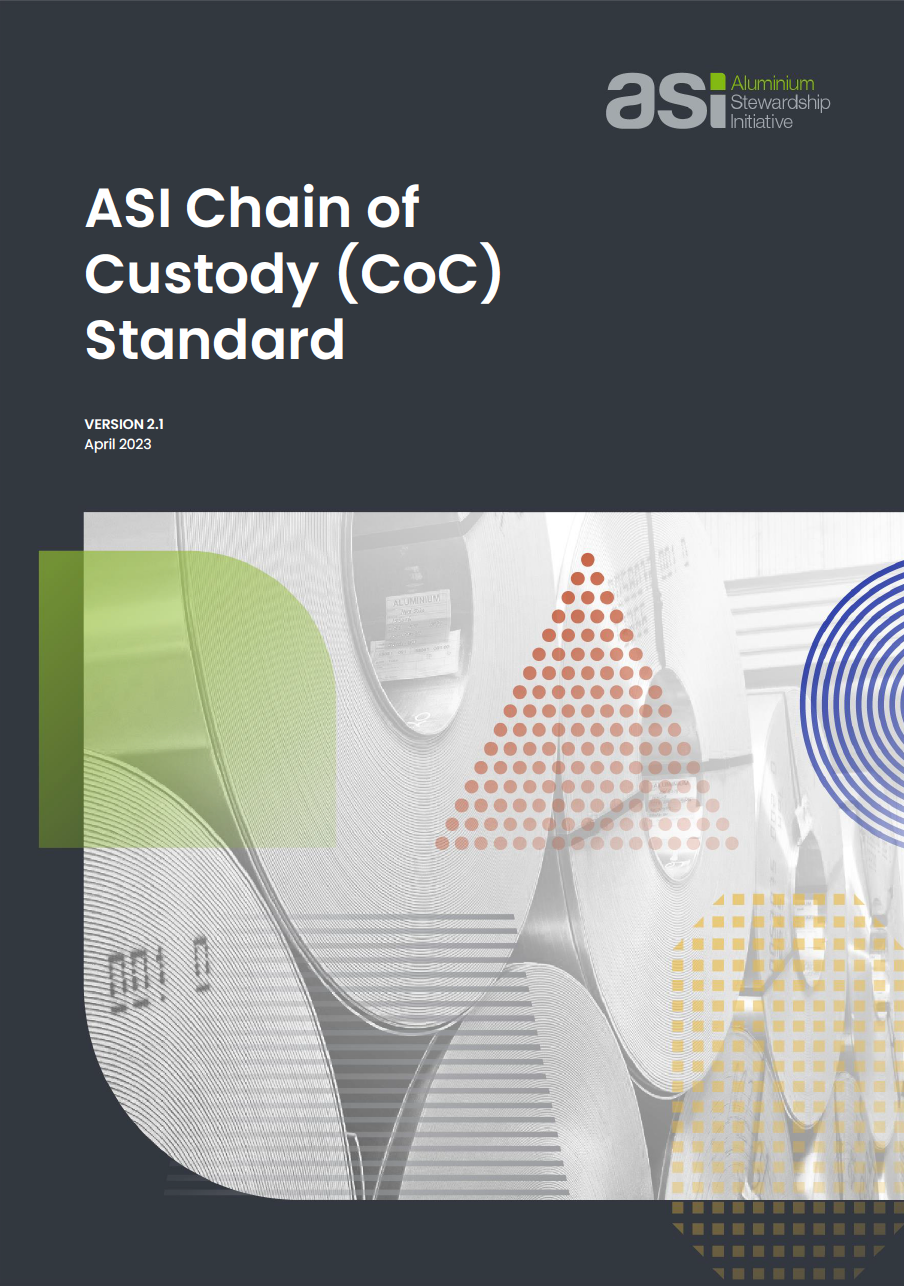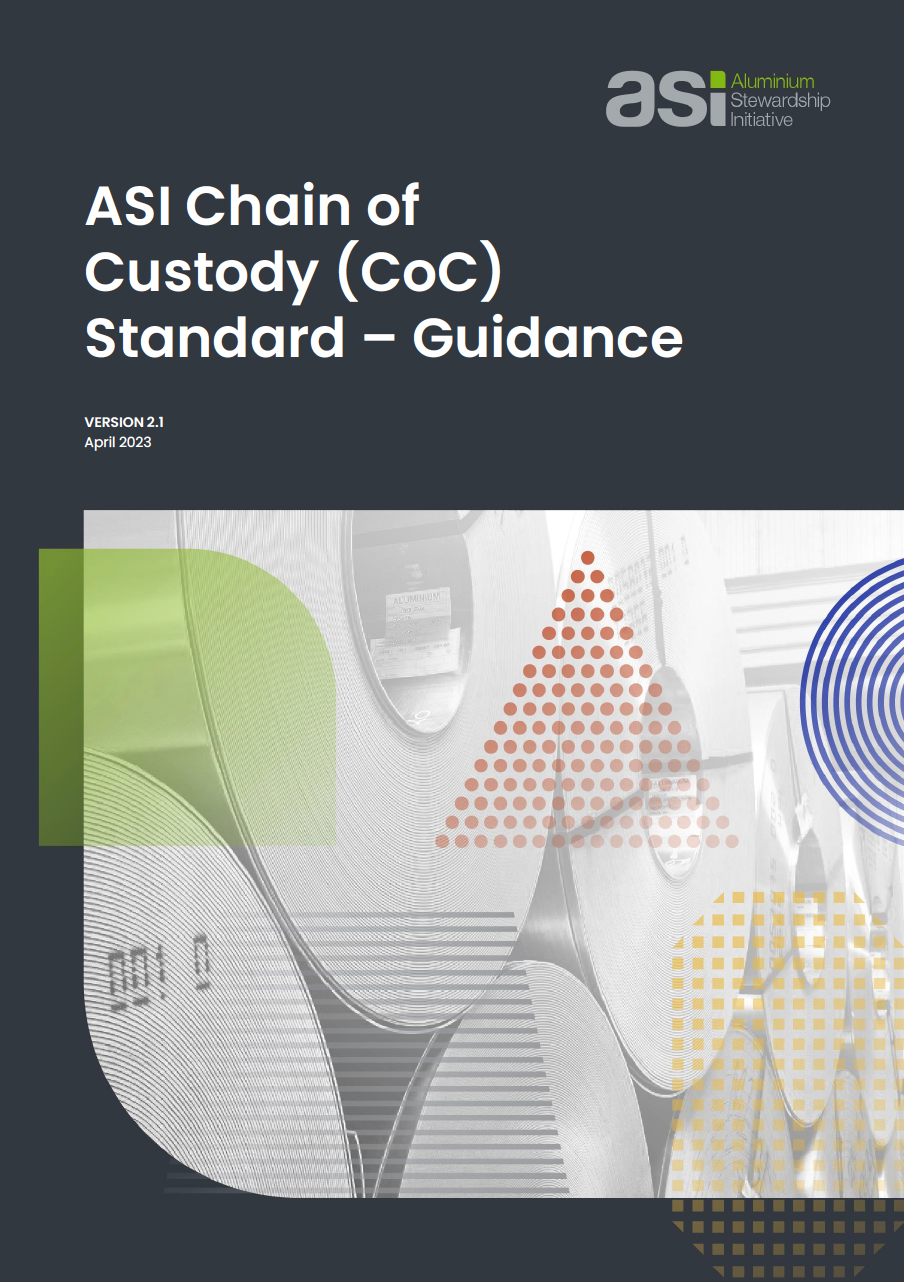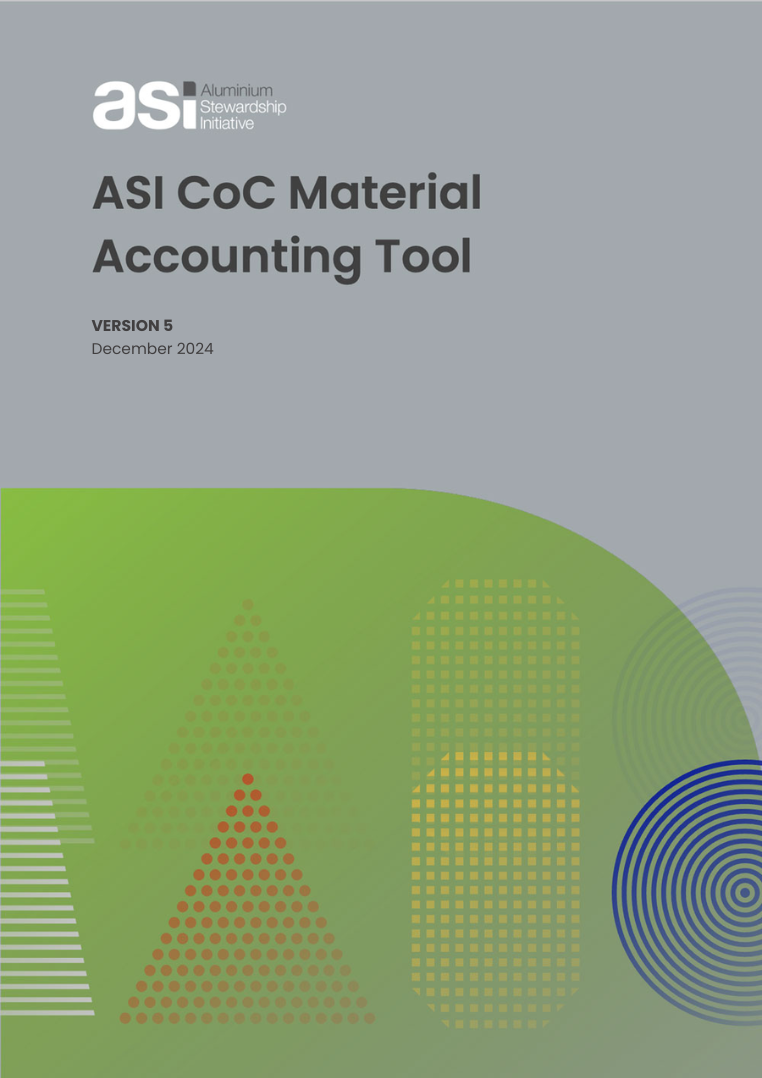ASI Chain of Custody Standard
The ASI Chain of Custody Standard creates a link from company practices to responsible sourcing of products, by connecting Certified suppliers and customers and accounting for material flow.
How this Standard serves the aluminium sector
The CoC Standard sets out requirements for the flow of Chain of Custody (CoC) Material, including ASI Aluminium, through the value chain (from mining or recycling through to final products), with assurance of responsible production at each link in the chain.
The CoC Standard supports responsible supply chains by:
- Providing a common standard for ASI Members in the Production and Transformation and Industrial Users membership classes, who wish to implement a chain of custody system for their aluminium supply chains
- Establishing requirements that can be independently audited to provide objective evidence for the granting of ASI CoC Certification
- Serving as a broader reference for the establishment and improvement of responsible production, sourcing and stewardship initiatives in metals and minerals supply chains.
Certification Extension Option for CoC from 2025
A major standards revision that is set to begin in March 2025 will consider fundamental changes to the Chain of Custody (CoC) Standard. During this transitional period, an optional extension of existing CoC certifications has been approved by the ASI Board.
The ASI Chain of Custody (CoC) Standard complements the ASI Performance Standard, and certification against it is voluntary for ASI Members, though is encouraged.
The CoC Standard Guidance supports implementation and interpretation.
The implementation of ASI’s CoC Standard enables a link between verified practices at successive steps of the supply chain under the ASI Performance Standard, to the products produced by ASI Certified Entities.
- Simplification of CoC Material types, removing differentiation of Cold and Liquid Metal under ASI Aluminium
- Improved consistency in language and defined terms throughout
- Input/Output reserved for CoC Material only crossing the Certification Scope boundary
- Intra-Entity Flow used for CoC Material moving between supply chain activities within an Entity’s Certification Scope
- Inflow/Outflow used for all material (encompassing both CoC and Non-CoC) into and out of an Entity and/or its supply chain activities
- Specified that Eligible Scrap is another kind of Input/Output but is not CoC Material until it is designated ASI Aluminium by the Aluminium Re-Melter/Refiner
- Removal of reference to internal scrap remelting throughout
- Significantly revised reporting requirements under Criterion 1.7
- Improved guidance and clarification on Outsourcing Contractors (Principle 2)
- Expansion of Principles 3, 4 and 5 to include material sourced via a trader
- Inclusion of pre-consumer scrap that is sourced via closed loop recycling as a source of Eligible Scrap (Criterion 4.2)
- Requirement for due diligence to be completed on traders (Criterion 7.2)
- Removal of reference to Recyclable Scrap Material Accounting (previously Criterion 8.2) and simplification of Material Accounting System for all materials (Criterion 8.1)
- Inclusion of recycled content as optional Sustainability data within CoC Documents (Criterion 9.3)
- Elimination of the Market Credits system (previously Principle 11)
- Development of a Supply Chain Assessment Tool (Appendix 1)



DOWNLOAD
The elements the Standard addresses
General CoC Management
- Management Systems and Responsibilities
- Outsourcing Contractors
Confirming Eligible Input
- Primary Aluminium
- Recycled Aluminium
- Casthouses
- Post-Casthouse
- Due diligence
CoC Accounting, Documentation and Claims
- Mass balance system
- Issuing CoC documents
- Receiving CoC documents
- Claims and communications
Applicability
The ASI CoC Standard defines 3 key stages for the flow of CoC Material in supply chains:
- Primary Aluminium: Bauxite Mining to Casthouse
- Recycled Aluminium: Aluminium Scrap Recycling to Casthouse
- Post-Casthouse: Semi-fabrication and manufacturing to final product.
How it applies to ASI members
ASI Members share a commitment to the responsible production, sourcing and stewardship of aluminium, but have varied interest in demonstrating responsible sourcing of products through a chain of custody system.
Certification against the ASI Chain of Custody (CoC) Standard is therefore voluntary for ASI Members, though it is recommended as a way to add value to Certification against the ASI Performance Standard.
However CoC Certification is mandatory for businesses that make any product-related claims relating to production or sourcing of CoC Material (ASI Bauxite, ASI Alumina and ASI Aluminium), as defined in the ASI CoC Standard. Without CoC Certification, such claims cannot be made.
Access versions and translations
A revised version of the CoC Standard (V2) was published in May 2022 and is the only version that is eligible to be used for new and re-certifying ASI Certifications.
2017 Standards (archive)
The first versions of ASI’s Standards and supporting documents were launched in 2017. The documents linked below are made available for reference only as they are now superseded by the 2022 versions, which can be accessed in the Document Centre.
ASI Limitation of Liability Disclaimer
Organisations that make ASI-related claims are each responsible for their own compliance with Applicable Law, including laws and regulations related to labelling, advertisement, and consumer protection, and competition or antitrust laws, at all times. ASI does not accept liability for any violations of Applicable Law or any infringement of third-party rights (each a Breach) by other organisations, even where such Breach arises in relation to, or in reliance upon, any ASI Standard, document or other material, recommendation or directive issued by or on behalf of ASI. ASI gives no undertaking, representation or warranty that compliance with an ASI Standard, document or other material, recommendation or directive issued by or on behalf of ASI will result in compliance with any Applicable law, or will avoid any Breach from occurring.
RELATED TOPICS:
SHARE THIS PAGE:


